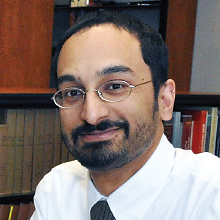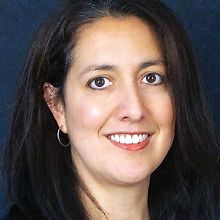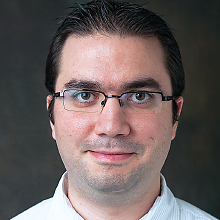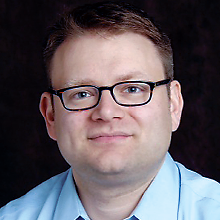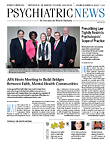Psychiatric News recently asked several early-career psychiatrists (ECPs) from different backgrounds and different parts of the United States to gaze into their “crystal balls” and predict what American psychiatry will look like during the next five or 10 years.
They all see big changes coming, largely driven by the Affordable Care Act (ACA), they said.
For example, “because of Medicaid expansion and health insurance exchanges created under the ACA, there is going to be a huge population of people who suddenly have health care coverage,” Sharat Parameswaran, M.D., of the James J. Peters Veterans Administration (VA) Medical Center in New York City, anticipated. “That means that they are going to be able to access primary care and mental health care in the outpatient setting, rather than showing up in the emergency room or having to be hospitalized. This means that we will need more primary care doctors as well as more psychiatrists to treat this huge influx of people.”
“I think there will be an emphasis on creating teams to care for such populations,” Christina Mangurian, M.D., an assistant professor of clinical psychiatry at the University of California, San Francisco, predicted. “I think there will also be much more emphasis on working collaboratively with other disciplines as well as with other mental health professionals.”
It will still be possible to have a solo psychiatry practice, Andres Barkil-Oteo, M.D., an assistant professor of psychiatry at Yale University, believes, but doing so will be harder than today because of pressures exerted by the transformation in the system to get physicians to participate in larger group practices. For example, physicians are being encouraged to join accountable care organizations, which are multidisciplinary systems built on principles of patient-centered medicine and coordination of care and on financial rewards derived from cost savings and demonstration of quality performance (Psychiatric News, January 7).
“Actually, I think that at some point we will have two types of collaborative care in which patients with common mental health problems will be seen at primary care clinics in consultation with psychiatrists, and patients with more severe mental illnesses will be seen at specialty mental health clinics with primary care doctors as consultants,” Barkil-Oteo said.
“Yes, integration between psychiatrists and primary care doctors will be very important,” Matthew Erlich, M.D., an assistant professor of clinical psychiatry at Columbia University, agreed. “But to integrate, we have to ask, where did we segregate before? We need to recognize that mental illnesses, behavioral illnesses, and substance abuse are intricately connected with medical illnesses. That is an insight that will be driving much of 21st-century psychiatry.”
ECPs View the Changes as Positive
The ECPs who were interviewed are also enthusiastically embracing the changes under way.
As Michael Yao, M.D., who works for the VA in Portland, Ore., reported, “The thrust here is toward more integrated care, especially in the outpatient arena. For instance, it is being piloted in our VA clinic in Portland with great effect. The patient caseload has increased, but so has patients’ satisfaction with care.”
“I will continue to pursue my National Institute of Mental Health–funded research on health care integration,” Mangurian said. She added that she is interested in seeing more psychiatrists initiate treatment of general medical illnesses now treated in primary care in patients with severe mental illness.
“I see opportunity for myself in the public-health sector,” said Ehrlich. “I think our medical colleagues are going to need consultation and help. I hope to be a part of that.”
“Part of my practice is working in a community mental health center and seeing people with mental illness,” said Barkil-Oteo. “But another part of my practice is working at a primary care clinic where I consult with primary care doctors on difficult cases. I am also training medical students to use scales to measure psychiatric symptoms and patient outcomes. It is a different way of thinking from a few years ago.”
“My goal for the next five to 10 years is to conduct health services research in order to promote the integration of mental health and general medical care, especially for people with serious mental illnesses,” Parameswaran said.
Questions Press for Answers
But if the health care changes they envision are to be positive, some key questions need to be answered, these young psychiatrists concurred.
For instance, “Peer specialists can now bill Medicaid,” Yao noted. “So could their use in the mental health system be expanded?”
“Would it be possible to use peer specialists in integrated treatment settings to not only help patients recover from serious mental illness, but to also recover from medical problems such as diabetes or hypertension?” Parameswaran asked.
Indeed, Parameswaran wonders whether psychiatrists and peer specialists, psychologists, nurse practitioners, physician assistants, and social workers could be deployed in coordinated health care teams in new ways. He hopes so, he said.
Parameswaran likewise raised the question of whether psychiatrists should provide some primary care to their psychiatric patients. In other words, he asked, “Is it time for us psychiatrists to start picking up the stethoscope? What we need to do in residency training is spend less time training residents in how to do inpatient medical care, which is what the first year of psychiatric training often focuses on, and more time in training them in some outpatient medical care.”
Finally, these ECPs have several suggestions for their colleagues.
“Be curious, take some risks!” Yao advised. “Use your energy and skills to make the American health care system better.”
“Be open to integration of care,” Mangurian emphasized.
“The entire health care system is obviously changing, and what will determine whether the changes are positive or negative for mental health will be how much psychiatrists are willing to engage in changing things,” Barkil-Oteo suggested. “If psychiatrists decide to retreat into their solo private practices, leaving policy and administration to other people, I fear the interests of our patients and our profession won’t be reflected in the changes to come.” ■
